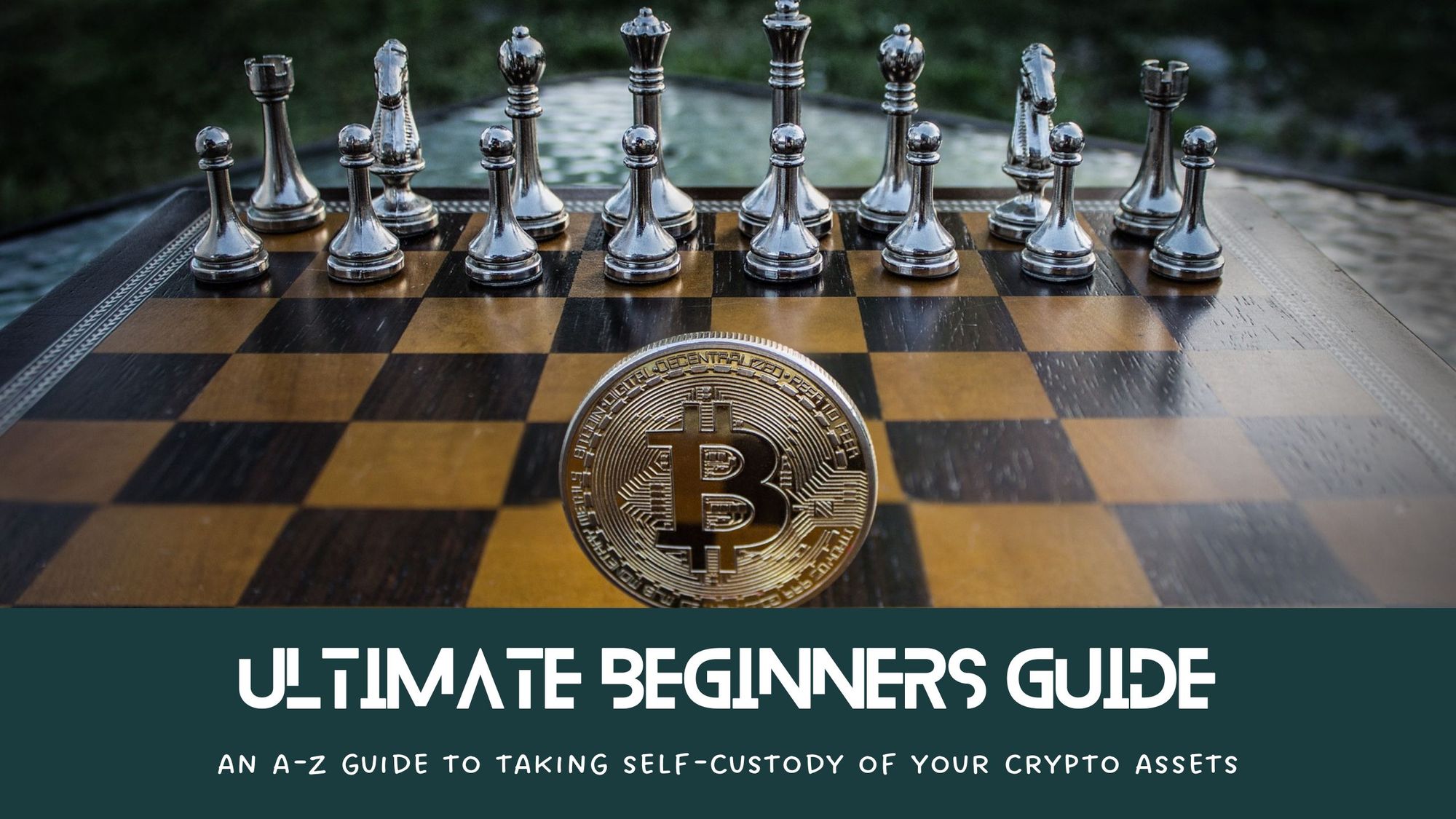Ultimate Beginners Guide To Self Custody of Assets (With Trust Wallet)
Considerations for choosing an exchange and what to look for during due diligence (DD) Privacy considerations Tips for how to do due light diligence on coins How to protect your seed phrase (which holds your NFT's and Tokens) with how to set up a Trust Wallet.

For as seemingly simple as taking self custody of our assets seems, it can be quite a daunting process for anyone who's not experienced.
Even for the pros it can be a pretty apprehensive process when interacting with a new DApp or sending/receiving money to new addresses or exchanges.
Today I'm going to walk you through the process from A-Z to demystify it all for you!
What will we cover? Great Question!
- Considerations for choosing an exchange and what to look for during due diligence (DD)
- Privacy considerations
- Tips for how to do due light diligence on coins
- How to protect your seed phrase (which holds your NFT's and Tokens) with how to set up a Trust Wallet.
Let's roll up our sleeves and dive in shall we?
What do consider when choosing an exchange?
It's important to remember that not all exchanges are created equal. They all have different regional support which may or may not limit access depending on where you live.
There are both local & international exchanges as well which may be accessible.
How easy is it to fund the exchange or get your money back into your fiat account is a big one. The shorter the time to fund an account either way is crucial (nobody wants to wait 3+ days like in TradFi).
The fees you pay for the ramp and exchanging currencies will also determine which exchange you're comfortable using.
The final consideration for the purpose of this article is supported coins. As a complete beginner the best advice you can take is to only invest in the flagship tokens, Ethereum (ETH) and Bitcoin (BTC).
If you're new to the markets or inexperienced in crypto you may be better off sticking with the flagship tokens to get comfortable with the new markets, their volatility and how they work.
From there, you may only want to stick to the top 50-100 coins, or bluechip tokens. If you're going out of the top 50-100 tokens you're getting into shitcoins, less established coins with less market caps that may be more volatile and easily manipulated price wise than you're comfortable with.
Lastly, what are the spreads? A spread is a price difference between buy and sell asks. Naturally, less spread means there's more liquidity and you're less likely to get zero'd out holding a token or losing money.
Privacy Considerations
It's important to cover your footprints and protect your Personally Identifiable Information as much as possible. It's no secret (especially in web2) that data is worth more than gold, so companies tend to breach our privacy to collect said data on us.
This in turn helps them essentially stalk us all over the internet with ads, or worse, potentially even sell our information to 3rd parties.
Considering data on the blockchain is permanent, and immutable, we often times lack the luxury of the privacy TradFi can afford us.
In order to help mitigate that you can get a VPN, and with the exception of a centralized exchange (CeX) as that's often against their terms of service (ToS) leave it on when interacting with web3.
Another solution could be a privacy browser, such as brave browser. These are for privacy minded people and can have some excellent tracking cookie blocking capabilities and help secure your personal data.
You can head over to brave.com to check that out if you wish.
Due Diligence (DD)
DD is of the utmost importance. It's critical you learn to Do Your Own Research (DYOR) and consider qualifying what constitutes a good investment for you.Things like your time horizon (how soon you may need the funds), your risk appetite and other factors are at play here.
A couple of good sites for crypto DD are:
Coin Market Cap: https://coinmarketcap.com/invite?ref=Z6V5YC32
Coingecko can also be pretty solid: https://coingecko.com
While the video tutorial focuses on CMC, CG can be an alternative if that suits your fancy more.
Whether or not the wallet you're choosing has hardware wallet (HW) integrations or not can be a potential deal breaker. It's much safer to keep your tokens on a HW (or cold storage) than a hot wallet. Although a hot wallet can be useful for limited amounts of funds to be able to make quick plays or investments.
Whether or not the applications are Decentralized and/or Open Source is another big consideration. As we've seen with FTX and countless other centralized businesses it's super risky to keep your funds outside of your custody.
You don't truly own anything unless you are your own custodian. Being able to do DD on the code to see if it's been put together well can be an asset, although for us non-techy folks it can be hard to understand. Most open source docs have a highlights section that makes it more assessable for us.
How to Set Up Trust Wallet
Before you get started you'll need a pen and paper.
There are scanning programs that will scan documents in clouds looking for 12-24 word seed phrases. Storing your seed digitally comes with super high risk that someone can find it.
Your seed phrase (seed for short) is an all access pass to everything you own: tokens, NFT's, digital identity solutions such as ENS or Unstoppable Domains.
If anyone gets access to this they have unrestricted access to do whatever they desire with your funds. This often results in people having all of their wallets drained.
The safest place to store this is on pen and paper and putting it in a safe or lock box with your other sensitive information you don't want leaked to anyone at any time.
Simply follow the prompts (or follow along with the video) to open up (potentially) your first ever wallet and take some of your first steps towards being custodian over your own hard earned funds!
These posts are not to be taken as financial advice. Everyone's personal situation is different, always do your own research to find the most appropriate solutions for your personal situation.
